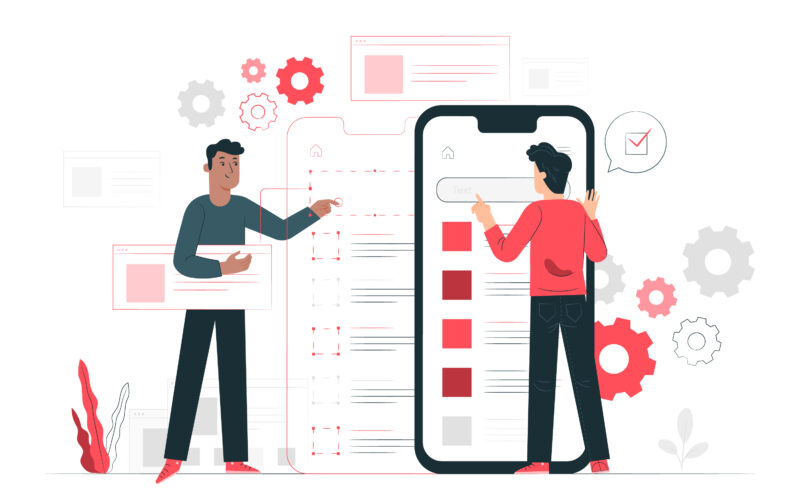For the User Interface (UI) and User Experience (UX) to be successful, these interactions must be seamless, memorable, and beneficial. Ensuring that your brand appeals to your target market requires choosing the finest UI/UX design company. Here are some thorough recommendations to help you make a decision. As a result, a Flutter app development company can offer a myriad of benefits to businesses and developers alike. Here, we dive into the key advantages of leveraging a flutter app development company for your digital projects.
Faster Time to Market:
One of the prime advantages of Flutter is the speed of development. Thanks to its ‘hot reload’ feature, developers can instantly view the changes made in the code on emulators, simulators, and hardware. This accelerates the development process, allowing businesses to bring their apps to market faster.
Cost-Efficient:
Using Flutter, a single codebase serves multiple platforms. This means you don’t need separate developers for iOS and Android. By cutting down on development time and resources, a Flutter app development company can help businesses significantly reduce app development costs.
Consistent and Expressive UI:
Flutter’s widget-based architecture ensures a consistent behavior and appearance across platforms. Its extensive set of customizable widgets allows developers to create complex UI’s that reflect the brand’s identity. This consistency ensures that users get a uniform experience, irrespective of the platform they’re using.
Performance:
Flutter apps are known for their high performance. Since Flutter doesn’t rely on any intermediary platform when communicating with the device’s native modules, the speed of development and runtime gets substantially accelerated. The Dart language, upon which Flutter is based, gets compiled using C++, making the apps run faster.
Less Testing:
With a single codebase serving multiple platforms, the quality assurance process becomes more manageable. There’s less to test, which means quicker testing cycles and fewer chances for platform-specific bugs to emerge.
Open Source & Strong Community:
Flutter is open-source, which means it’s continually refined and updated by a vast community of contributors.
Integration with Firebase:
Firebase, a Backend-as-a-Service (BaaS) app development platform, is inherently supported by Flutter. This means that a Flutter app development company can build serverless applications with ease. Integration with Firebase offers functionalities like analytics, databases, messaging, and crash reporting without any server-side programming.
Customizable & Extendable:
Flutter’s layered architecture provides a customizable and extensible framework. Developers can effortlessly customize existing widgets or create new ones, giving them full control over the way apps look and function.
Secure & Reliable:
Flutter provides a range of plugins, supported by Google, which ensures that the apps are not just functional but also secure. With regular updates and patches, Flutter remains one of the most reliable frameworks for app development.
Support for Older Devices:
Unlike some other frameworks that only support the latest OS versions, Flutter apps can run on older versions of Android and iOS. This ensures a broader audience reach, particularly in regions where users might not have the latest devices.
Future-Ready:
Flutter is not just about mobile. Its capabilities extend to web and desktop applications. As the digital landscape evolves, a Flutter app development company is well-equipped to adapt and cater to newer platforms and devices.
Rich Set of Plugins:
Flutter has an extensive range of plugins available that can integrate with both iOS and Android platforms. This not only minimizes the development effort but also streamlines the integration of third-party tools and platforms.
Backward Compatibility:
Flutter’s backward compatibility ensures that your apps run seamlessly even on older versions of devices. This prevents the hassle of frequent updates or overhauls just to accommodate a new OS release.
Flexibility with Diverse Databases:
Flutter’s ability to work seamlessly with different databases ensures that businesses can use the data storage solutions best suited to their needs, without worrying about compatibility issues.
Stateful Hot Reload:
The ‘stateful hot reload’ feature allows developers to retain the app’s state while implementing changes, which significantly boosts productivity and reduces debugging time.
Optimized for Mobile:
Flutter has been optimized for mobile environments, ensuring smooth scrolling, easy navigation, and responsive design that offers an engaging user experience.
Highly Adaptive Framework:
Flutter adapts elegantly to different screen sizes and resolutions, making it perfect for a diverse range of devices beyond just smartphones, including tablets and foldable devices.
Streamlined Internationalization:
Flutter simplifies the process of localizing apps for global audiences, supporting multiple languages, time zones, and layouts without added hassle.
Support for Advanced OS Features:
Flutter’s support for advanced OS-level features, such as camera, geolocation, storage, and more, ensures that apps remain feature-rich and comparable to native applications.
In a world that’s rapidly shifting towards digital, businesses need to be agile and adaptive. Whether it’s about bringing an app quickly to the market, ensuring consistent UI, or optimizing costs, Flutter emerges as a top contender in the app development space. Hiring custom mobile application development services not only ensures you harness the full potential of this dynamic framework but also guarantees a strategic advantage in the ever-evolving digital ecosystem.





